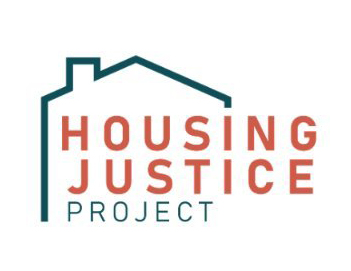After four years of undergraduate work at Iowa State University, three years of law school at Boston University School of Law, a cross-country move to Seattle, Washington, to be with her fiancé—now husband, and landing a patent docketing specialist position at an intellectual property law firm, everything was finally falling into place for Kaitlin Heinen-Sharma by the spring of 2018.
Until it wasn’t.

Heinen-Sharma (’14 political science, chemistry) enjoyed her position with the intellectual property law firm, but something was missing.
“I got some good experience there. But overall, I realized that this plan I had concocted for my life, my heart wasn’t in it. I didn’t love it. I wasn’t fulfilled. I wasn’t feeling excited or jazzed about it. I felt like a cog in a machine,” she said.
Current news and political events also colored her overall outlook on life, and Heinen-Sharma found herself tightly clinging to the Midwestern morals and values instilled in her while growing up in Davenport, Iowa. She felt pulled toward an area of the law that could make a real difference in the lives of others.
It was time for a change.
A greater good
In July 2019, an eviction defense attorney position became available at the Housing Justice Project, a legal aid clinic sponsored by the King County Bar Association where Heinen-Sharma had volunteered when she initially relocated to Seattle. The organization offers free legal assistance to low-income renters facing eviction in King County. Heinen-Sharma jumped at the chance to practice at the clinic because it allowed her to truly help others who desperately need legal representation.
“When you are in a criminal case, you have a right to an attorney. In civil cases, that’s not the case. It wasn’t uncommon for tenants to get railroaded at these hearings, not knowing how to navigate them,” she said.
Heinen-Sharma quickly learned that almost everyone who asks for assistance from the Housing Justice Project has a similar story.
“Human suffering is repeated over and over again in different individuals. You start to see the patterns very quickly,” she said. “The family car broke down so we can’t make this month’s rent. Mom or Dad passed away unexpectedly and we had no idea it cost $10,000 to get the corpse out of the morgue just to lay them to rest, and we don’t have that kind of money. I lost my job and I haven’t been able to find a new one, so I fell behind this month. It could be anything, and a lot of it reflects the well-known statistics we often cite at the Housing Justice Project.”
Those statistics reveal that up to 40% of low-income renters in Seattle are only one unexpected expense—$400 on average—away from falling behind in their rent and possibly facing eviction. And, the road to homelessness starts with eviction in 70% of Seattle’s homeless cases.
Advocating for the homeless

Many of those facing homelessness are underrepresented individuals, and Heinen-Sharma is an advocate for them all, according to her colleague Tram Tran-Larson, community engagement manager at the Housing Justice Project.
“Women are disproportionately evicted and discriminated against, especially BIPOC (Black, Indigenous, people of color) women,” Tran-Larson said. “Kaitlin is a loud, fierce advocate for a safer and more equitable world for women and non-cis men. I think she will continue to make sure these issues are talked about and addressed on a regular basis.”
Pandemic forces change
The Housing Justice Project resides in two King County locations— the King County Courthouse and the Maleng Regional Justice Center. Prior to the COVID-19 pandemic, clients could walk into a clinic, consult with an attorney and develop a defense strategy in a whirlwind 30- to 60-minute session before presenting their case. On a typical day, four attorneys represented 12 clients between 9 a.m. and noon.
But when the COVID-19 pandemic struck, everything changed. In March 2020, the Housing Justice Project staff quickly developed new ways to help clients after the entire staff began working from home and the courts were closed to in-person proceedings.
With assistance from her colleagues, Heinen-Sharma worked with her team to quickly develop a telephone hotline using free Google products. From start to finish, the hotline was up and running in only 36 hours.
“All my clients were just crying in pure uncertainty. ‘Am I going to lose my job tomorrow? How am I going to pay rent after I lose my job? If the schools shut down, where are my kids going to go?’ The anxiety just bloomed and was really sending people over the edge.”
“I look back on that time and it’s pretty awesome to say that was one of those times when we were just flowing as a team,” Heinen-Sharma said. “We were really in sync. We were all motivated by our common mission.”
Within the first few months of the pandemic, the number of people seeking assistance from the Housing Justice Project increased by 20% as people were left jobless when businesses shuttered their doors. With so much uncertainty about the virus and the economy, Heinen-Sharma’s clients were distraught.
“All my clients were just crying in pure uncertainty,” she said. “‘Am I going to lose my job tomorrow? How am I going to pay rent after I lose my job? If the schools shut down, where are my kids going to go?’ The anxiety just bloomed and was really sending people over the edge.”
Personal struggle
Because people were isolating alone at home, Heinen-Sharma’s phone calls to clients often turned into impromptu therapy sessions.
“I was fielding a lot of clients’ trauma. I did not know what secondary trauma can do to first-line responders. I’m not an EMT, I’m not a nurse. But I was on the frontlines of the economic fallout and it was affecting me,” Heinen-Sharma said. “Earlier this year, I was diagnosed with secondary trauma stress disorder.”
She sought help, and is now doing well. The experience has helped bring her clients’ situations into sharper focus.
“That’s where I see the change. The silver lining of COVID is the heightened awareness of mental health as a collective society.”
“It ended up being one of those things that, through my own mental health journey and going to therapy, I’ve now turned that into the change I want to see for my clients in the courtroom,” Heinen-Sharma said. “I try to use that as an asset now.”
Silver linings
Washington is still conducting virtual court hearings, and the Housing Justice Project staff continues to work from home. The staff has upgraded the clinic’s hotline and clients are still using it to get the legal help they need. And despite the unprecedented challenges the COVID-19 pandemic has raised over the past 18 months, Heinen-Sharma suggests some good has come from it.
“That’s the crazy part about COVID. As horrible, awful and just profoundly traumatizing it was, there were these silver linings. All of sudden, everyone I know is asking me about my job. People are talking about evictions in the news. The awareness is heightening. We’re all talking about mental health together,” she said.
Mental health has become a stronger defense for her clients, with judges recognizing it more often as a disability accommodation.
“That’s where I see the change,” Heinen-Sharma said. “The silver lining of COVID is the heightened awareness of mental health as a collective society.”
Statewide impact
Earlier this spring, Washington passed a law that grants individuals the right to an attorney at an eviction hearing, similar to defendants in criminal cases. The change means the Housing Justice Project is now considered an essential service and is being funded by taxpayer dollars. The number of attorneys in the practice has grown from five to 17 and the number of clients served has also increased dramatically. As one of the original lawyers on staff, Heinen-Sharma trains the new attorneys and gets them up to speed on Washington’s new right-to-counsel law for evictions.
“States can do this by funding attorneys to stop that waterfall into homelessness. At least now we have a dam. It might have some leaks, but we’re the ones stemming that tide of homelessness.”
The clinic’s accomplishments and expertise in eviction cases has caught the attention of lawyers across the state, and Heinen-Sharma and her colleagues are now training others about the new law and how to handle the influx of eviction clients.
“We were asked specifically to provide training because King County, where Seattle is located, is where one-third of evictions happen in the state,” Heinen-Sharma said. “We’re some of the more experienced because we have to respond to that volume.”
Heinen-Sharma is proud of Washington’s efforts to help stem homelessness by creating the right-to-counsel law. It’s a first step, and one she believes can lead to real change.
“States can do this by funding attorneys to stop that waterfall into homelessness. At least now we have a dam. It might have some leaks, but we’re the ones stemming that tide of homelessness,” Heinen-Sharma said. “Understanding the root causes of homelessness and funding the solution is how to make those changes. It’s exciting to see that happen, and we get to be a part of that history in tenant rights for the nation.”

